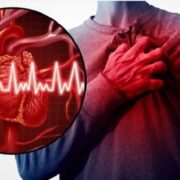Introduction:
Atrial fibrillation (AFib) is a common heart rhythm disorder characterized by irregular and often rapid heartbeats. One of the most serious complications associated with AFib is the increased risk of stroke.
In this blog, we’ll explore the intricate link between atrial fibrillation and stroke, the potential for recovery from AFib, the role of exercise in managing the condition, and common triggers for AFib episodes. If you’re seeking expert guidance on AFib and its implications, consider consulting a neurologist in Whitefield for personalized care and support.
- How is atrial fibrillation related to stroke?
Atrial fibrillation poses a significant risk factor for stroke due to the formation of blood clots within the heart’s chambers. In AFib, the irregular and rapid heartbeats disrupt the normal flow of blood, causing it to pool in the atria (the heart’s upper chambers). This stagnant blood can form clots, particularly in the left atrial appendage, a small pouch-like structure where clots commonly originate.
If a clot breaks loose and travels through the bloodstream, it can block a blood vessel in the brain, leading to an ischemic stroke. Ischemic strokes account for the majority of strokes associated with atrial fibrillation. The risk of stroke in individuals with AFib is significantly higher compared to those with normal heart rhythms, underscoring the importance of stroke prevention strategies in managing this condition.
- Can you fully recover from atrial fibrillation?
The management of atrial fibrillation typically focuses on controlling symptoms, reducing the risk of complications, and improving quality of life rather than seeking a complete cure. However, with appropriate treatment and lifestyle modifications, many individuals with AFib can achieve symptom relief and effectively manage the condition.
Treatment strategies for AFib may include medications to control heart rate and rhythm, blood thinners to prevent clot formation and reduce stroke risk, and procedures such as cardioversion or catheter ablation to restore normal heart rhythm in certain cases. Lifestyle modifications such as maintaining a healthy weight, quitting smoking, limiting alcohol consumption, and managing stress can also play a crucial role in managing AFib and reducing the risk of complications.
While AFib may not be fully curable, effective management can significantly improve quality of life and reduce the risk of complications such as stroke.
- Can exercise reduce atrial fibrillation?
Regular exercise is an important component of a healthy lifestyle and can have beneficial effects on heart health, including reducing the risk and severity of atrial fibrillation episodes. Engaging in moderate-intensity aerobic exercise such as walking, cycling, or swimming for at least 150 minutes per week can help improve cardiovascular fitness, lower blood pressure, and promote weight loss, all of which may contribute to better AFib management.
However, it’s essential for individuals with AFib to consult with their neurologist in whitefield before starting or modifying an exercise regimen, as certain types of exercise or intensity levels may be contraindicated depending on individual health status and underlying medical conditions. Additionally, individuals with AFib should be mindful of their symptoms during exercise and avoid overexertion or activities that may trigger AFib episodes.
Incorporating regular exercise into a comprehensive treatment plan for AFib can complement other therapeutic interventions and contribute to better overall heart health and symptom management.
- What can trigger atrial fibrillation?
Atrial fibrillation episodes can be triggered by various factors, including:
- Stress and Anxiety: Emotional stress, anxiety, or high levels of adrenaline can stimulate the autonomic nervous system and trigger AFib episodes in susceptible individuals.
- Alcohol Consumption: Excessive alcohol intake, particularly binge drinking, can disrupt normal heart rhythm and precipitate AFib episodes.
- Caffeine and Stimulants: Consuming large amounts of caffeine or other stimulants can have a stimulating effect on the heart and may trigger AFib in some individuals.
- Sleep Apnea: Untreated sleep apnea, a condition characterized by interrupted breathing during sleep, is associated with an increased risk of atrial fibrillation due to its impact on cardiac function and oxygen levels.
- Certain Medications: Some medications, such as certain asthma drugs, decongestants, or thyroid medications, may increase the risk of AFib or trigger episodes in susceptible individuals.
- Other Medical Conditions: Underlying medical conditions such as hypertension, heart disease, hyperthyroidism, or lung disease can predispose individuals to atrial fibrillation and may trigger AFib episodes.
Understanding potential triggers for AFib and taking steps to minimize exposure to these triggers can help individuals better manage the condition and reduce the frequency and severity of AFib episodes.
Conclusion:
Atrial fibrillation is a complex heart rhythm disorder that is closely associated with an increased risk of stroke. By understanding the link between AFib and stroke, exploring strategies for managing AFib, including the potential role of exercise, and identifying common triggers for AFib episodes, individuals can take proactive steps to optimize their heart health and reduce the risk of complications. If you’re seeking expert guidance on atrial fibrillation or stroke prevention, consider consulting a neurologist in Whitefield for personalized evaluation and care tailored to your individual needs.














Comments